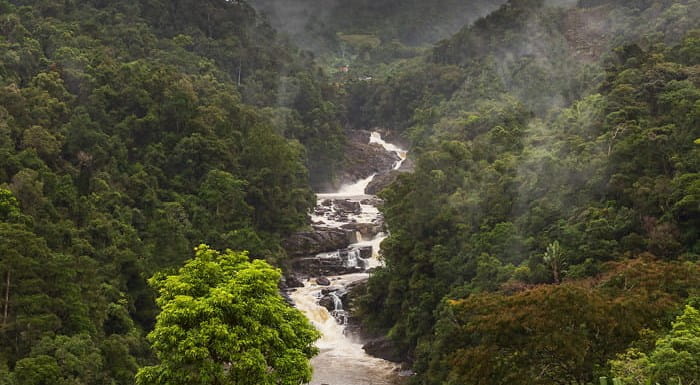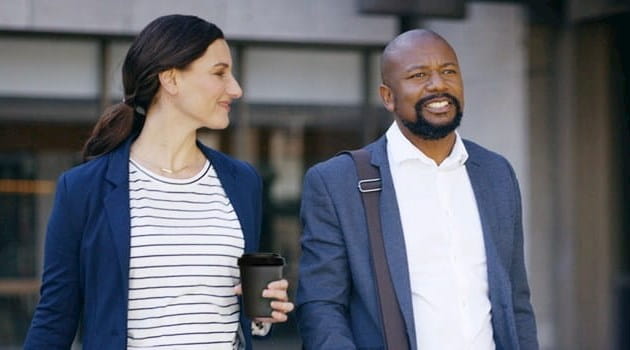Climate consultancy South Pole has supported hundreds of climate change projects since its start to reduce carbon emissions, ranging from solar installations, to biogas projects, to forestry protection. The company then offers carbon offsetting to businesses who are looking for initiatives that suit their corporate social responsibility requirements.
This is a market-led response to actively putting a price on carbon, says Isabel Hagbrink, Director of Communications, South Pole: the first step in putting a price on natural resources that the world's industries rely upon.
"Journalists and others are critical of carbon offsets, but what we say is offsetting your emissions is an excellent way to understand what your emissions are in the first place, and it puts an internal price on carbon.
“This adds a cost to your budget that will grow if the cost of carbon goes up, the pain point increases, and the idea is that businesses will start to look for different ways to reduce carbon emissions or change their business model because they don't want to pay more: it's a catalyst for change."
As many governments and businesses start toward a net zero transition, South Pole sees a role for itself in helping businesses manage realistic carbon transition plans. This means surveying businesses' net zero targets, ensuring they are science based, and that they will actually be achievable.
Next steps
The gathering pace of climate change demands more action to get business and finance on the same page about the cost of climate change, says Rebecca Self, Director of Sustainable Finance, South Pole.
Corporate awareness is really key in understanding how to get climate change, or 'climate risk' given the fast pace of change, recognised as a financial risk.
Businesses are struggling to act because it is hard to quantify the physical risk of climate change, making it hard to get started.
Climate change is also uneven, it affects parts of the world differently, and it takes different forms. "It is unrealistic to be able to predict exactly which risk is going to happen, in which location, and when," says Self.
Therefore a series of scenarios are developed, and these projections and estimates are indicative of what may happen.
"These scenarios, of which there are many, are developed by climate scientists; in the case of finance, there's the Network for Greening the Financial System (NGFS), the Bank of England has its own scenarios too," says Self.
They range from extreme scenarios where the world warms by more than 4 degrees Celsius; to managed scenarios where governments intervene and the world only warms by 1.5 degrees by 2050, and then a series of scenarios between those two.
Businesses have to weigh the physical risk from the scenarios against the cost of transitioning away from carbon use (transition risks). For accountants, says Self, there is an increasingly important part to play in this rapidly developing field.
"You can use these scenarios to look at your own balance sheet, your own operations, your products, and your services; your geolocation, customers and your supply chain and see what the likely cost will be to your business. You need to see what will happen if these various scenarios play out, then disclose how this has impacted your business.
"It's the process of asking: what if this happens?"
How to prepare
While forecasting on the potential risks to business is speculative, many businesses will be thinking about how to take practical steps to make a change.
"There's an adage that says: what gets measured, gets managed," says Self. “The first thing is measure: if you don't understand your emissions, then it’s really hard to know where to start.”
Firms can use the greenhouse gas protocol and measurements from the partnership for carbon accounting and finance (PCAF), says Self, amongst other frameworks.
Businesses can also use education and awareness to make a change with their own employees, which are essential, says Self.
As for taking action, it’s about understanding the emissions from the products and services you have, and the risks and opportunities; the physical and transition risks.
Car manufacturers, for example, understand the risk of the petrol and diesel engine to the climate, and the new opportunity to replace the threat is selling electric cars. The cost of development is a transition risk that is soon outweighed by still producing Internal Combustion Engine (ICE) cars which will eventually be banned.
Financial Services opportunities
The provision of capital and funding by banks and insurers is a key lever for change, especially in a carbon-intensive industry.
Insurers could technically refuse to cover carbon intensive projects like coal mines, while banks can refuse to lend to carbon intensive businesses.
But the best way to deal with these carbon intensive industries is to make sure they transition effectively, to areas where there are opportunities for new products and services, says Self.
Financial services industries can offer green products and bonds, and there is a responsibility for accountants to hold these products to account and to avoid greenwashing.
“There is a risk of greenwashing," she says. "There is a huge role to play for chartered accountants in clarifying which financial products are actually helping to reduce climate change,” she says. "Credibility, reliability and robust reporting with assurance and third party audits - accountants having that oversight is critical."


